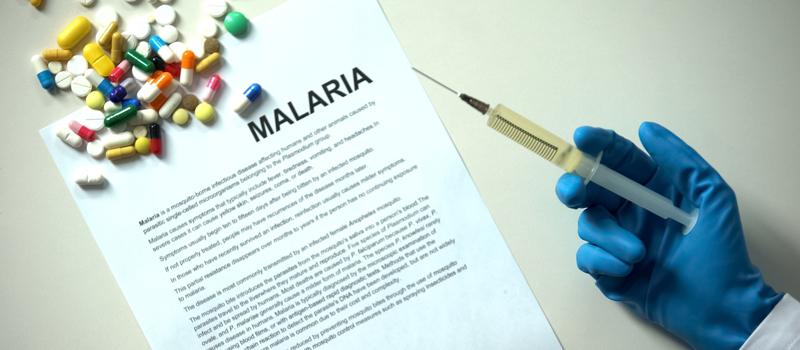Malaria 101
Posted by Mosquito Squad
June 30, 2023

Recently, five cases of malaria were reported in the United States. While malaria cases are commonly contracted from international travel to malaria-prone areas of the world, four individuals from Florida and one from Texas acquired malaria locally from mosquitoes residing in the United States. As public health experts continue to monitor the situation, it is important to understand mosquito-borne illnesses. At Mosquito Squad, we want to help fight the bite by providing accurate information on what malaria is, how it’s contracted, and what you can do to protect yourself from mosquito-borne illnesses.
What is Malaria?
Disease Agent: Protozoa (Single-Celled Parasites, Plasmodium)
Vector: Anopheles species mosquitoes
Malaria is a protozoan disease spread to humans through the bites of infected mosquitoes. The protozoa act as parasites, taking advantage of the human and mosquito life cycle to survive and reproduce. There is no animal reservoir for malaria, meaning malaria transmission comes exclusively from infected mosquitoes biting healthy people and healthy mosquitoes biting infected people.
Which Mosquitoes can carry malaria?
Anopheles mosquitoes are the only mosquitoes known to carry and transmit malaria. There are 430 unique species of Anopheles mosquitoes, and of them, 40 unique species can carry and spread malaria. Anopheles mosquitoes are permanent water mosquitoes (as opposed to floodwater mosquitoes), meaning they will only lay their eggs in permanent, standing bodies of water. Anopheles mosquitoes are primarily found throughout the Southeastern United States in fresh and saltwater marshes, swamps, and the edges of bodies of water.
What are the Symptoms of Malaria?
According to the Centers for Disease Control and Prevention (CDC), common symptoms of malaria can resemble flu-like illness: fever, chills, fatigue, body aches, loss of appetite, and headaches are the most common symptoms. Untreated symptoms may develop into nausea, diarrhea, anemia, or jaundice. In severe cases, life-threatening symptoms may develop, ranging from seizures and neurological complications to kidney failure and death. In 2020, the World Health Organization reported over 240 million malaria cases worldwide, with a mortality rate of 12%.
Who is Most At-Risk for Malaria?
Malaria does not always present symptoms, but individuals with HIV/AIDS, compromised immune systems, children under five years old, and expecting mothers are at high risk of developing severe symptoms. In addition to severe symptoms, malaria during pregnancy can impact the health of the mother and fetus. Premature delivery, low-birth weight, stunted fetal growth, and fetal loss are among the most dangerous outcomes of contracting malaria.
Why is Malaria Occurring in the United States?
Malaria dominates neotropical and tropical regions of the world mainly because these warm, damp environments support Anopheles mosquito populations better than cooler, less humid areas. Malarial pathogens rely on the mosquito life cycle to grow and reproduce, so areas that highly support Anopheles mosquitoes will also highly support malarial growth and transmission. As temperatures increase and climates change, precipitation patterns become more extreme, mosquito breeding grounds will expand globally. Mosquito-borne illnesses are likely to spread to new areas like the United States.
What Strategies Help Prevent the Spread of Malaria?
Prevention is the most important strategy to avoid malarial contraction, and there are many strategies you can implement to prevent getting bitten by mosquitoes:
- Removing standing water from around your home is the easiest way to prevent mosquitoes from laying eggs and establishing breeding grounds.
- Clearing out your lawn removes resting areas for adult mosquitoes already flying around.
- Wearing long-sleeved clothes and long pants helps cover exposed skin, making it harder for mosquitoes to bite you.
- Wearing EPA-registered bug sprays and insect repellents, especially during dawn and dusk hours when mosquitoes are most active, discourages mosquitoes from biting you.
How Can Mosquito Squad Help?
Any mosquito bite could mean disease transmission for you or your loved ones. Mosquito Squad’s essential service as a protector of public health is crucial in the fight against malaria. Our licensed technicians and service pros help remove mosquitoes from your yard and prevent them from returning between services. ‘
Contact your local Mosquito Squad to learn about our treatment options and schedule your service today.
